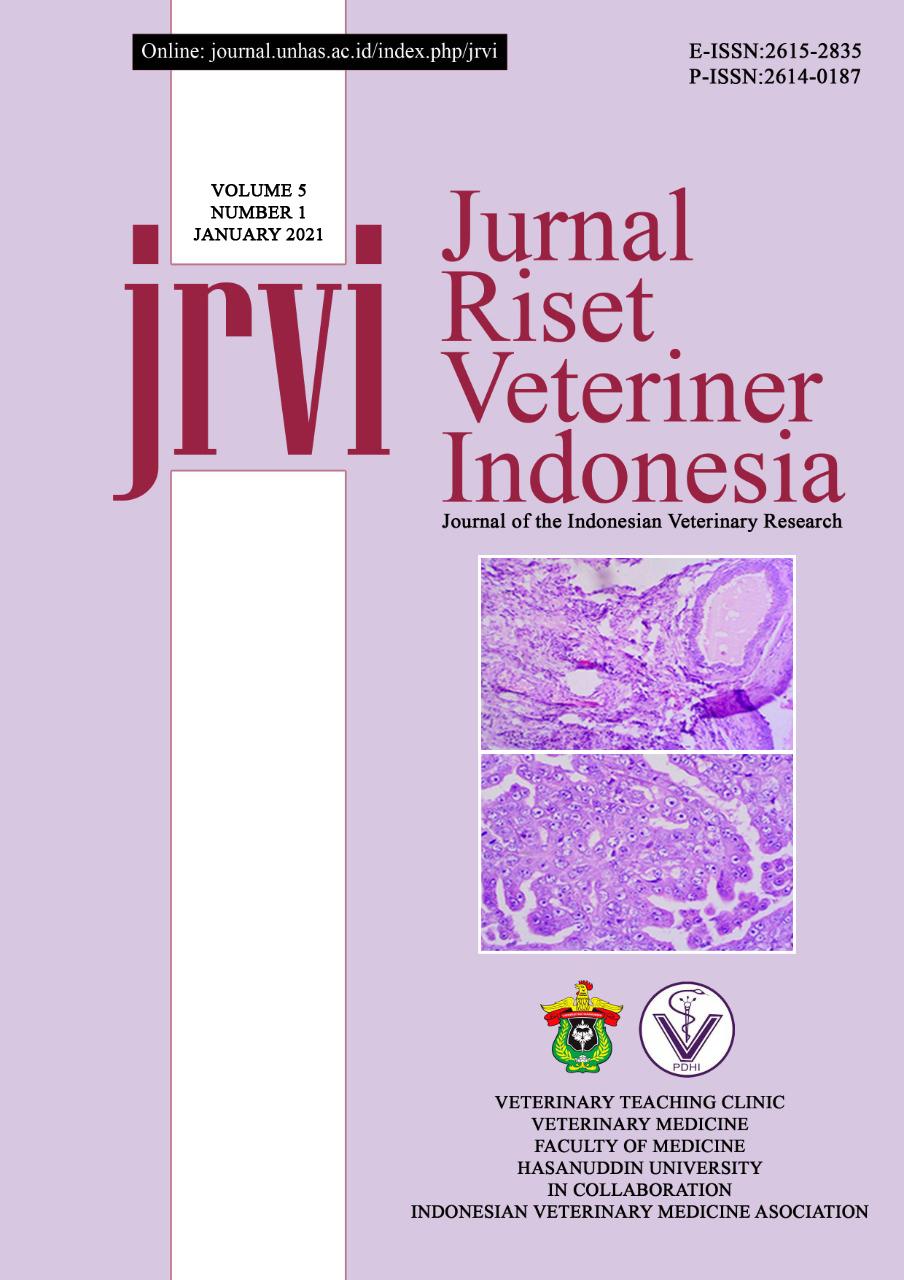Abstract
Currently, sterilization is the main choice for controlling the population of pets. But sterilization also has long-term effects. One of them is related to cholesterol levels in the blood. In this study, we investigated the effect of castration on changes in cholesterol levels. Twenty-three Wistar rats aged 10 weeks were divided into four groups: the female sham surgery group (n = 6) and the male sham surgery group (n = 6) who underwent sham surgery, the orchiectomized (OCX) group (n = 6), which underwent bilateral OCX at 10 weeks of age, the ovariectomy (OVX) group of mice (n = 6) who underwent bilateral OVX at 10 weeks of age. At 8 weeks postoperatively, all 23 mice were shut off. The serum cholesterol level is measured. Serum cholesterol levels had no effect 0.168, namely (p value> 0.05) in the castration rat group (OCX + OVX) compared to the sham surgery group with 67.08 ± 13.581 and 76.00 ± 16.346, respectively. Our findings indicate that orchiectomy and ovariectomy have no effect on cholesterol levels.

This work is licensed under a Creative Commons Attribution-NonCommercial 4.0 International License.

